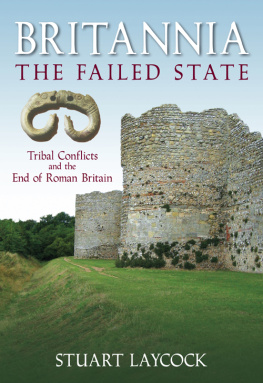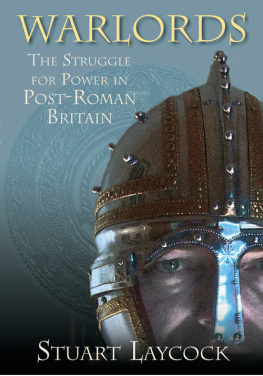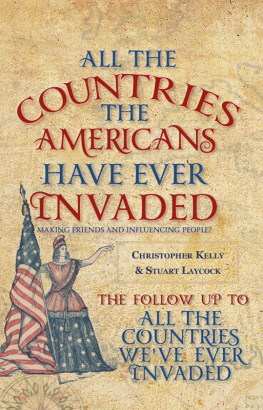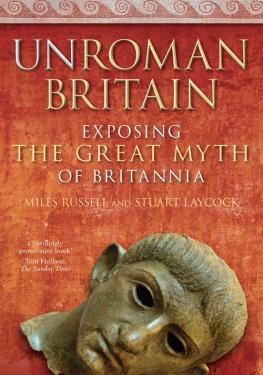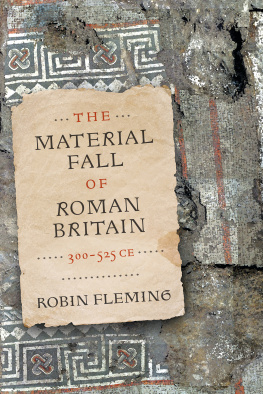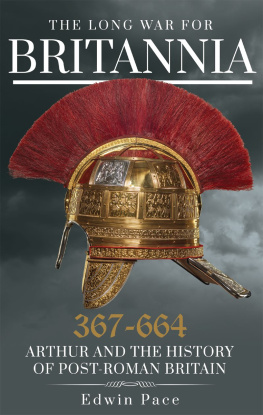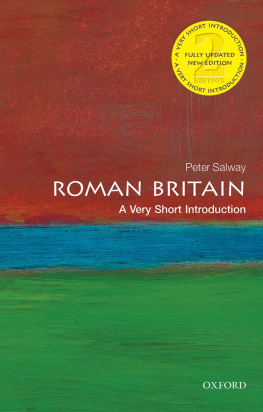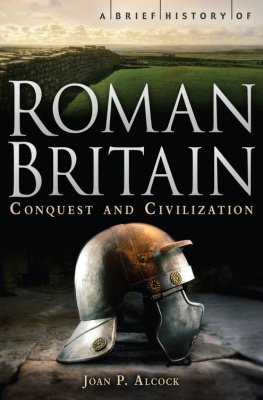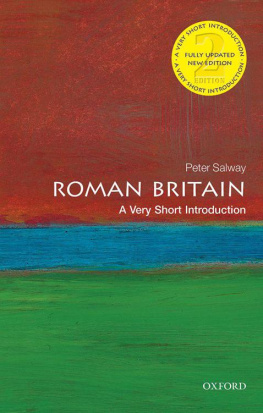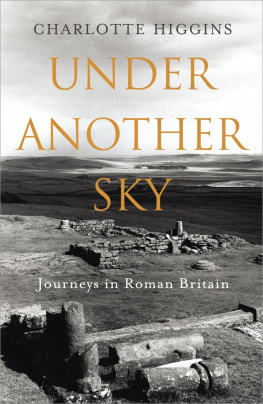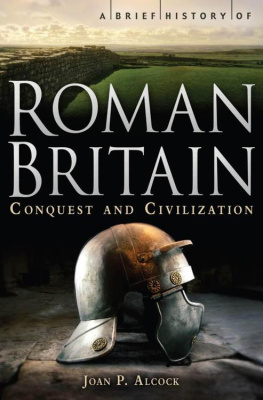
In memory of all aid workers who have given their lives in conflicts, but particularly Tony and Neil.
Contents
Thanks to my wife and kids for their love and support. Huge thanks to Dr Kevin Leahy for his unfailing encouragement, advice and help, and for reading through the manuscript, and also to Ian Rowlandson for his suggestions. Thanks to David Shelley for his photos.
In fact, nothing has assisted us more when fighting this mighty nation, than their inability to work together with each other. It is only rarely that two or three states unite to repel a common enemy, and in this way, fighting separately, they are all conquered.
Tacitus on Britannia, c . AD 98, Agricola 12
For it has always been the way with our nation, as now, to be powerless in repelling foreign enemies, but powerful and bold in making civil war.
Gildas on Britannia, AD c .535, On the Ruin of Britain 21
The core of this book is an attempt to understand how Roman Britain became Anglo-Saxon England. Understanding how and why this transformation took place is of fundamental importance to our sense of what it means to be English (and on many levels what it means to be British). However, while other questions about English and British history are gradually being answered, this, one of the most important, has remained unanswered and is thought by many to be unanswerable.
We have gone from a state of Victorian certainty, where the accounts of Gildas, Bede and the Anglo-Saxon Chronicle were reckoned to give clear and accurate descriptions of the birth of England, to a position that too often seems to consist of Roman Britain stops but we dont really know why and then a few decades later England starts but we dont really know why.
This book applies a new model to the end of Roman Britain and the beginning of Anglo-Saxon England, to see what light it can shed on the central problem of how a populous, often prosperous, country with a sophisticated part-British, part-Roman culture of its own, was taken over by an Anglo-Saxon culture introduced by people crossing the North Sea in small boats.
As such it is an attempt to construct a large-scale narrative, a type of approach that seems often to draw a lot of fire these days. However, while in principle it may be a good idea to wait for the archaeological evidence to speak, at the moment that process does not seem to be providing any big answers to the big questions about the end of Roman Britain. So it may be worthwhile to explore a hypothesis in the light of the available evidence, while always granting priority to the archaeology rather than any modern concerns. This is not intended to be the last word in the debate over what happened at the end of the fourth century and beginning of the fifth, but if its the next word that at least would be something.
For many people in Britain today, particularly among the over-35s (a demographic group that includes much of the academic and archaeological establishment), the quintessential war remains the Second World War. They are, of course, well aware of the many other different types of war that have existed and continue to exist, but many of their attitudes and ideas about armed conflict seem still to be dictated by the period 1939-1945.
This is, in many ways, entirely understandable and inevitable. The Second World War achievement is something many Britons remain hugely proud of and it dominated a number of aspects of the childhood of those who grew up in the 60s and 70s, a mere 15-35 years after the end of the war. One has only to think of the Second World War construction kits that occupied so many schoolboy hours and the Second World War films and series that filled so much cinema and television time not to mention, of course, the frequent recurrence of Second World War themes in political rhetoric through the years of the Cold War (and continuing in todays War on Terror). The bad guys are always likened to Hitler, however unlike Hitler they may be, and the good guys are often likened to Churchill, however unlike Churchill they may be.
In terms of understanding history, though, (or indeed making it) this dominant position of the Second World War can be very unhelpful because the Second World War was, by the broad standards of history, an immensely unusual armed conflict. The paradigm of highly united nation states facing each other in a lengthy, determined fight to the finish, with good clearly on one side (if one ignores Stalin and contentious issues like the bombing of Dresden) and evil clearly on the other, is one that occurs in history comparatively rarely. In most armed conflicts, support for war is far less united and the moral boundaries are far more blurred.
The good-versus-evil moral paradigm has had an undeniable effect on views about the end of Roman Britain and the beginning of England, with a number of historians appearing to take sides; some perhaps subconsciously, some more obviously. There is still some evidence of a pro-Celtic faction who essentially find it regrettable that England is not a Celtic nation today and have seen the Anglo-Saxon arrival as, therefore, something bad which the Britons of the time would and should have resisted but were unable, for some reason, to defeat. Less common today (though widespread in Victorian times) is the opposing view that the Anglo-Saxon arrival was the invasion of a force with superior characteristics of hard work and morality, sweeping away the decaying remnants of a corrupted Romano-British culture. Even more damaging, though, in terms of modern historiography are underlying beliefs about the concept of a nation state uniting every member of society to face its enemies.
Todays historians are clearly too knowledgeable and sophisticated to apply this model in its fullest form to the transfer of power from Roman Britain to Anglo-Saxon England. However, many of its core assumptions still flavour the debate about the period. Just as the Romans referred to Britannia and Brittones as if they were one unified homogenous force, so we refer to Roman Britain and Britons, ignoring the many different peoples, nations in many senses, that made up Britain at the time and who were often separated from each other by huge cultural and political differences.
Referring to Britons in the Roman period as a homogenous group makes little more sense than referring to Europeans, for instance, in the same way at the same time. On one level it is a harmless and, perhaps, inevitable shorthand for the different tribes living in Britain, but on another it skews the whole debate in a very unhelpful way.
Many people find it hard to understand how Roman Britain, with a population of perhaps 2-4 million in the early fourth century, could in the fifth century allow its central eastern areas to become culturally, and on some level, politically, dominated by a far smaller number of Germanic immigrants. If Roman Britain had been a single political entity then it would, indeed, be hard to comprehend.
The Second World Wars hold on modern British imagination is, however, now beginning to slip. As veterans grow older and die the period is slowly moving beyond living memory. Equally Britain and Britons have recently become involved in armed conflicts which are, in many ways, far more typical of war throughout history and which suggest new ways of examining the end of Roman Britain and the beginning of Anglo-Saxon England. The first of these conflicts was the war in Bosnia or, in more general terms, the break up of the Former Yugoslavia. Some of what happened there I saw at first-hand as an aid worker. Inevitably with such a recent and so bitter a conflict much of what occurred, and why, remains controversial. However, the broad outlines are clear and have some potential analogies with the period in Britain at the end of the fourth century and beginning of the fifth.
Next page
